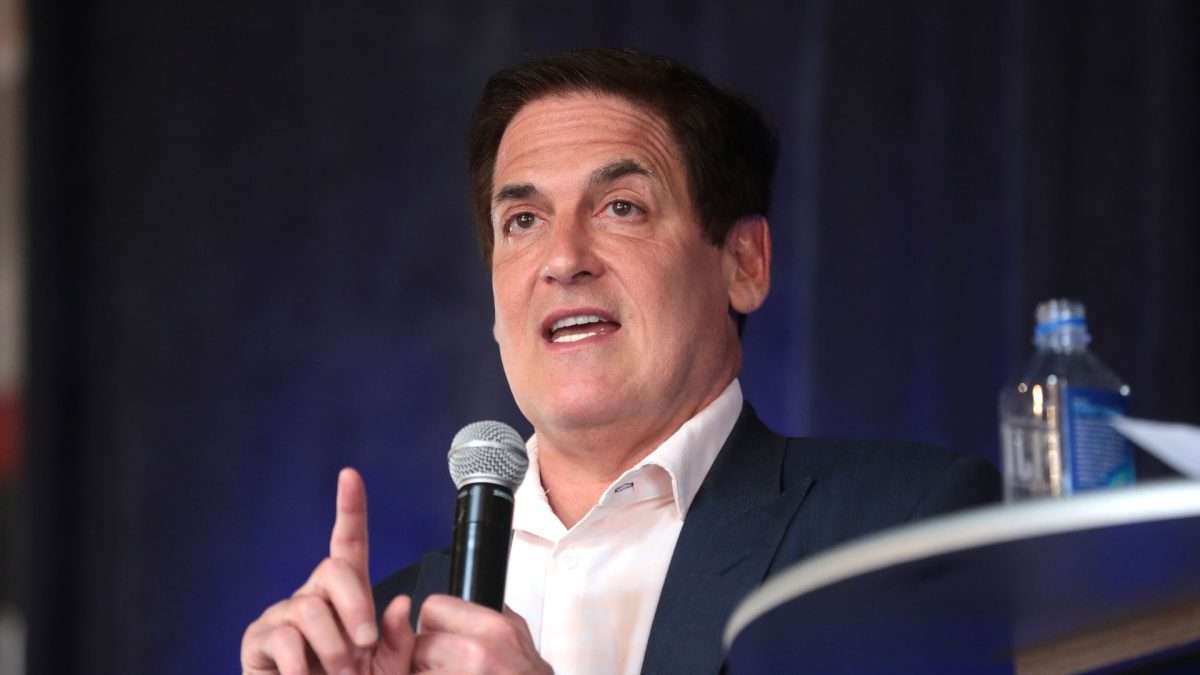The social media platform Bluesky is taking the world by storm, adding roughly a million users per day this week, according to company CEO Jay Graber.
Among its active users is billionaire Mark Cuban, who’s praised the environment on Bluesky, posting on Tuesday: “It’s fun to be social on a social network again.”
Cuban Likes Bluesky
The Dallas Mavericks minority shareholder is, in fact, quite social on the social network, replying to approximately three dozen responses to his posts over the past eight days.
Cuban, who opposed Donald Trump and endorsed Vice President Kamala Harris in the 2024 presidential race, recently said he would consider buying X.
Given Cuban’s politics and business interests, an acquisition of Bluesky would seem to make sense. But Bluesky’s corporate structure and its approach toward censorship and moderation could discourage Cuban.
Who Owns Bluesky?
Bluesky has its origins as a $14 million decentralization experiment within Twitter during the Jack Dorsey era. It separated from Twitter after Elon Musk’s acquisition of the platform in 2022 and by early 2024 was open to the public after a year-long beta period.
Today, Bluesky is a public benefit limited liability corporation (PBLLC). That means while it’s a private for-profit corporation its leadership has the ability to make decisions that don’t simply focus on the bottom line. It can consider the public interest as well.
Other PBLLCs include outdoor apparel company Patagonia, which has a strong commitment to environmentally sustainable and fair labor business practices.
Dorsey’s Problems With Bluesky Foreshadow Cuban’s Concerns
In early 2024, Dorsey left not just the Bluesky board, but also the platform itself. He told the outlet Pirate Wires that Bluesky was “literally repeating all the mistakes” that Twitter had made in content moderation.
What Dorsey envisioned was for Bluesky “to be an open-source protocol that Twitter could eventually utilize” by decentralizing moderation through user-selected open-source algorithms. Decentralization of algorithmic governance, in Dorsey’s view, “removes liability for the company.”

Near the end of his tenure at Twitter, Dorsey was under heavy pressure from advertisers and conservative politicians on content moderation. Advertisers pulled their ad spending over concerns that their brands would appear alongside content from white nationalists and other extremists.
Dorsey was also made to testify before Congress in 2018 to address allegations that Twitter was censoring right-wing voices.
“This is literally repeating all the mistakes we made as a company. This is not a protocol that’s truly decentralized. It’s another app. It’s another app that’s just kind of following in Twitter’s footsteps, but for a different part of the population.”
Twitter founder Jack Dorsey’s critique of Bluesky in an interview with Pirate Wires
Cuban on Bluesky’s Shortcomings
Cuban, whose politics have a libertarian bent, may share some of Dorsey’s views on Bluesky. Even as he’s become a more active Bluesky user, Cuban has hinted at concerns over how the platform’s moderation policy will evolve.
Like Dorsey, Cuban has suggested that Bluesky is or may become a club of the like-minded.
He does not appear comfortable with the aggressive content moderation demands by Bluesky users, including calls to boot off Trump supporters. The platform has quickly deplatformed far-right voices like Andrew Tate.
The Dallas Mavericks minority shareholder has said that the “blocking and hide reply for everyone features are far more powerful” on Bluesky and serve as better alternatives to banning.
Cuban has criticized Musk’s X as an “algorithmically inflamed” platform. Indeed, a recent study observed “a possible recommendation bias favoring Republican content in terms of visibility” on X after Musk’s endorsement of Trump this summer.
X’s “For You” tab has also made more visible far-right, antisocial accounts that demonize immigrants, non-whites, and religious minorities. It has also at times featured explicit Nazi content.
As for Cuban’s future with Bluesky — including whether he remains more than just an active user — that will be determined as much by philosophy as it will by economics.
But, regardless of whether Cuban plays a formal role in Bluesky’s future, the platform’s growing pains will include not just issues of bandwidth, but also how to deal with the trolls.
Globely News covers the game changers transforming the worlds of business, sports, politics, and technology. From AI and electric vehicles to the rise of China and the NFL's next stars, we've got you covered.



